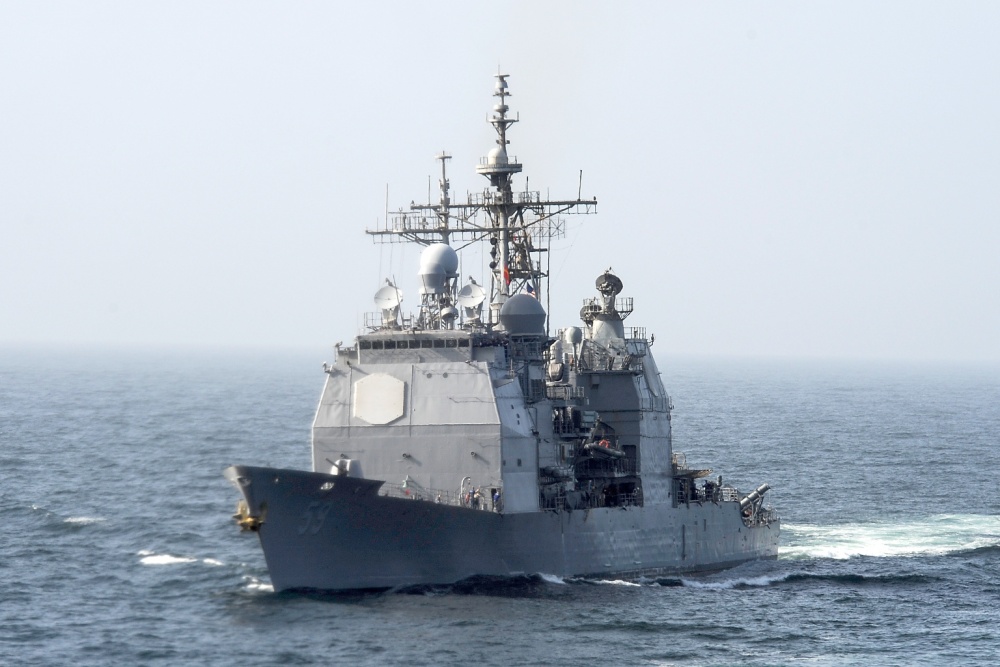On a Thursday morning in April 1997, USS Princeton entered Puerto Quetzal, Guatemala’s only Pacific port.
Guatemala was still trying to overcome a history of human rights abuses. Its military had been powerful and above the law. Instances of oppression and torture had left a stain that disrupted US-Guatemala relations. Distrust remained within the country.
Puerto Quetzal was a busy commercial port. We saw agricultural products come and go -- bananas, rice, sugar, coffee. One ocean liner pulled in. Most of the tourists were European; they were whisked away in buses to the spectacular Mayan ruins and old cities of the interior.
The U.S. naval attaché drove us around Puerto San Jose in the embassy Pathfinder. San Jose was a town of about five thousand people. The town was crowded; bikes and pedestrians outnumbered cars on the dirt streets.
We drove around as shops were closing. The places that served food and drink into the night remained open. Our men were out in groups; they all seemed to enjoy the opportunity to experience a town like San Jose.
We finished our tour. After returning to our ship, we thought we were in for a quiet night. Until…
We learned that three of our men were in jail. The chief master at arms and I departed for the jail. We were in company with the attaché and two armed Guatemalan naval officers.
As our vehicles turned down the narrow street to the National Police station, we faced a scene out of a pulp thriller. Narrow street, high walls. Dark. Police station on the left, mid-block. Pile of impounded motorcycles rusting away in front of the police station.
And trouble. A mob had gathered in front. In Guatemala during the prior few years, mobs frustrated by the lack of a functioning judicial system, had overpowered jailers and dragged prisoners out to kill them.
We entered the jail. Cinder block building. Hot and smoky. No door. Entry foyer was also the admin office. One desk with two semi-uniformed cops. Two manual typewriters that were missing parts. Bare light bulb on the ceiling. No telephone. Radio of questionable value. And the cell…
At the back of the small room was this one holding cell. Can’t say how big it was, the light from the front room only penetrated a few feet past the bars of the door. The cell had no lights, and most of it was in pitch darkness. I could see some sort of washbasin. Do not know if there were any toilet facilities. There sure was no ventilation, no benches nor beds. I could not tell how many men were in the cell. Our men huddled near the door in the only pool of light. Our master at arms talked to them. They were scared but unharmed. We assured them that we would do all we could to get them back.
Here is the crime, as we understood it. As our men were walking, a young Guatemalan grabbed a gold chain from one of them. Our men gave chase and tackled the young man. He was bleeding from his nose and ears.
We agreed to pay for the boy’s medical treatment in exchange for the release of the prisoners to my custody. I returned to the ship with our master at arms to continue the arrangements. He went back to the jail with food and bottled water, blankets and pillows for our men.
Then, around midnight, no deal. The police insisted that the matter needed to go before the local magistrate in the morning. The police had no love for the military. With the mob out front, the jailers did not want to be seen releasing servicemen. If the people, who still distrusted soldiers, got angry, they might have killed the prisoners and the jailers.
When morning came, our men in jail were getting worried. They knew that Princeton was scheduled to sail on the tide.
By noon, we had good news. The local magistrate had built credibility in her jurisdiction by applying the law fairly. She proceeded carefully and honestly to adjudicate the case.
By 5:00 pm, we had the real story. One of our men chased the thief and tackled him. While subduing the young man, blows were exchanged. Then our three men held the thief and called for the police. When the police showed up, they arrested the whole group.
At 5:30 our men were freed. We piled into the Pathfinder and drove to Guatemala’s naval base where its commander had his best 65-foot patrol boat waiting. We boarded and he joined us for the short trip to Princeton.
We climbed onto Princeton’s fantail. The Guatemalan commander gave our captain a box of coffee, a present from Guatemalan President Alvaro Arzu. We reciprocated with a few gifts and our sincere thanks.
I went to my station on the bridge, reviewed the checklist and reported to the captain that Princeton was ready for sea. He told me to lay below and clean up.
I went to the wardroom and poured myself a cup of coffee.
